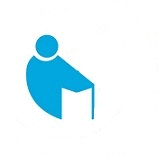What is a brain abscess?
A brain abscess is an infection in the brain that is encapsulated (confined within its own area) and localized to one or more areas inside of the brain. This condition may cause problems with the brain and spinal cord function. Brain abscesses are rare, but are more common in young school-aged children than other ages.
What causes a brain abscess?
The more common causes of a brain abscess include viruses and bacteria. There are three ways a virus or bacteria can enter the body and infect the brain, including the following:
- Infection is spread from another area of infection in the body. This accounts for the majority of brain abscess cases.
- Infection is spread through the blood stream from the lung or chest area.
- Viral or bacterial germs enter directly into the brain through an open wound in the head.
Risk factors for developing a brain abscess include the following:
- congenital (present at birth) heart disease
- meningitis
- chronic middle ear and sinus infections
- dental or jaw infections
- infections of the face or scalp
- head injury or skull fracture
- traction – a medical device that uses pins/screws that are placed around the head to hold the head and neck areas still; used in patients with broken necks or for specific surgeries that require the head and neck to be immobilized.
- shunt (devices used to drain excess amounts of cerebral spinal fluid) infections
What are the symptoms of a brain abscess?
The following are the most common symptoms of a brain abscess. However, each child may experience symptoms differently. Symptoms may include:
in babies and younger children:
- fever
- a full or bulging fontanelle (soft spot located on the top of the head)
- sleepiness or less alert than usual
- increased irritability
- high-pitched cry
- poor feeding
- projectile vomiting
- seizures
in older children:
- fever
- complaints of severe headaches
- nausea and vomiting
- changes in personality or behavior
- changes in speech
- problems walking
- increased movement in the arms or legs (spasticity)
- seizures
The symptoms of a brain abscess may resemble other conditions or medical problems. Always consult your child’s physician for a diagnosis.
Treatment for a brain abscess:
Specific treatment for a brain abscess will be determined by your child’s physician based on:
- your child’s age, overall health, and medical history
- the extent of the condition
- your child’s tolerance for specific medications, procedures, or therapies
- expectations for the course of condition
- your opinion or preference
The key to treating a brain abscess is early detection and treatment. A child with a brain abscess requires immediate hospitalization, surgery, and close monitoring.
The goal of treatment is to reduce the pressure in the head and to properly drain the infection. Medications are used to control the infection, seizures, fever, and/or other conditions that may be present.
The extent of the problem is dependent on the severity of the brain abscess and the presence of other organ system problems that could affect the child. In severe cases, a breathing machine may be required to help the child breathe easier.
As the child recovers, physical, occupational, or speech therapy may be needed to help the child regain muscle strength and/or speech skills.
The healthcare team educates the family after hospitalization on how to best care for their child at home and outlines specific clinical problems that require immediate medical attention by his/her physician. A child with a brain abscess requires frequent medical evaluations following hospitalization.
